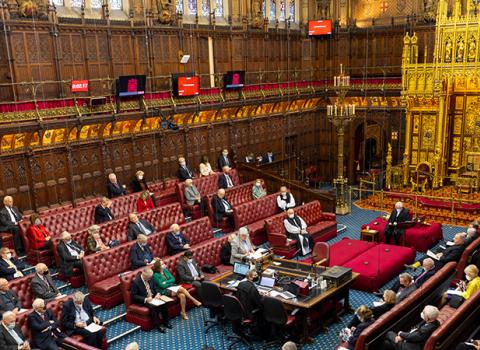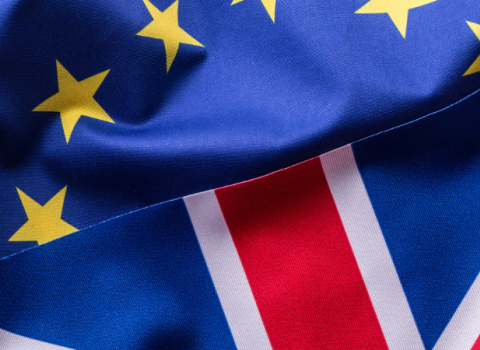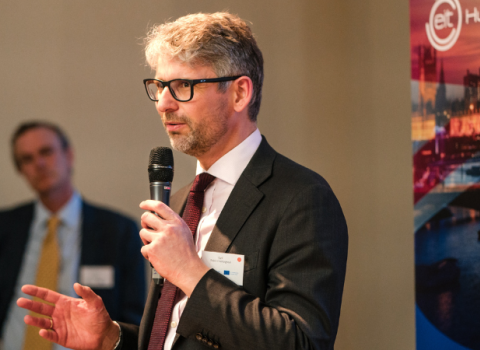Britain will be left to "pick up the scraps" of research funding if it leaves the EU, the vice-chancellor of Cambridge University, Leszek Borysiewicz, has warned.
“Cambridge received £68 million in a year from Horizon 2020,” Borysiewicz said. “That is, to put it bluntly, 17 per cent of our research income.”
Borysiewicz gave his full-throated support for remaining in Europe, saying, “The idea of the Little England sitting somewhere off the coast of Europe is a fallacy and complete idiocy from those who wish to promote that kind of view. We’d become an irrelevance in so many fields. You can’t think you’ll stand alone and retain the leadership that we have."
The date for a referendum on the UK membership of the EU has yet to be set, but it could be held as early as June next year.
There is an argument that if the UK left the EU its current contribution to EU funding pots such as the Common Agricultural Policy could be redirected to research. But Borysiewicz said, “We would lose that sense of collaboration and engagement.”
The EU should not be seen simply in terms of “a money pot we raid periodically”. Cambridge University’s charter requires it to serve society’s needs, and taking part in Horizon 2020, which funds research on grand societal challenges like climate change, helps to meet these requirements, said Borysiewicz, speaking at ‘Excellent research in the UK: Do we need the EU?’, an event held in Cambridge last week.
David Richardson, vice-chancellor of the University of East Anglia, agreed, pointing to the EU’s Cooperation in Science and Technology (COST) actions, which provide money for networking. “There’s not a lot of funding but people still want to be [part of them] because of the way they stimulate interactions,” Richardson said.Don’t ‘do a Switzerland’
Borysiewicz suggested looking to the case of Switzerland to rubbish the proposition that the UK could retain a commanding grip on Horizon 2020 competitions from outside the EU.
Last year the Swiss found themselves on the wrong side of EU law after they voted in a referendum to limit immigration. Although not a member of the EU, to compete for research money, Switzerland is expected to follow the EU rule of freedom of mobility.
The repercussions were lightning, with the EU freezing Switzerland of Horizon 2020.
As a result Swiss researchers lost a lot of influence and found themselves in an ignominious place, said Borysiewicz. “When the head of [a Swiss] university has to ring you up to say ‘Can we submit this [project] under your name?’… How would you like Cambridge to have to pick up the phone to Berlin?” he mused.
Following several rounds of political patchwork, Switzerland was admitted back to parts of Horizon 2020. For that reason, Borysiewicz said, "I'd rather we stay in the boat, trying to shape and to lead research policy in Europe, than to stay on the side-lines picking up scraps."
Hung up on red tape
Other speakers at the event suggested Brussels’ reputation for doing its utmost to make things as burdensome as possible is wide of the mark.
“I don’t find European projects more difficult to administer than national projects,” said Florin Udrea, professor of semiconductor engineering at Cambridge. But where the EU falls down is in not providing enough vivid examples of why it is useful. “It doesn’t communicate itself well,” Udrea said. “All the European websites are horrible.”
For Gerry Gilmore, professor of experimental philosophy at Cambridge, “The EU is almost as bureaucratic as Cambridge, but not quite.” He added, “The most bureaucratic organisation in the world is in fact NASA.”
“The EU is not for everybody,” admitted Vicky Ford, a British MEP who sits with the centre-right bloc. “If you’re a fast-moving high tech SME, by the time you’ve signed the grant you’ve missed your opportunity. There are other solutions, but you need the EU too.”
Ford questioned the impression that to win a grant in Brussels, you need a friend on the inside, noting that for 40 per cent of Horizon 2020 grant holders this is the first time they have won an EU grant. “It’s not a closed shop,” she said.
Research costs
The Commission’s decision to increase compensation for project management costs is another reason to be happy with EU research. Horizon 2020 now pays for 25 per cent of the cost of administration – previously it was 20 per cent.
“The fact that you get a large amount of money up front doesn’t happen with national projects,” said Udrea. “It’s very helpful.”
Borysiewicz agreed, saying, “It doesn’t cover all of it, but it’s better than what we get from some other research funders.”
Courting other countries
Those in favour of Brexit argue the UK should be turning its attention from European countries and courting emerging economies such as China and Brazil.
This is already the case, said Udrea. However, “Our relationship with China and US is more about competition than collaboration,” he said. “It’s more about us delivering services to them - it’s contract research.”
The notion of the UK outgrowing Europe is fanciful, Gilmore said. There are first-rate researchers in mainland Europe who the UK needs to continue working with. “Poland is really, really good at astro-physics, for example,” he said, adding, “We’re often the minor partner in US research - it’s not like that in Europe.”





 A unique international forum for public research organisations and companies to connect their external engagement with strategic interests around their R&D system.
A unique international forum for public research organisations and companies to connect their external engagement with strategic interests around their R&D system.